Introduction
I f you have bought or been given this book, and watched the television series that accompanies it, the chances are you already have an interest in wildlife. You may feed birds in your garden or notice the local fox as you come home late at night. You may enjoy country walks or take the children to the seaside and explore rock pools on the beach. You may even be knowledgeable about one particular group such as birds, butterflies or wild flowers.
Or you may be a complete beginner, feeling completely out of your depth when faced with field guides, optical equipment and mysterious terms such as fieldcraft or jizz. Like learning to cook or becoming a gardener, finding out about wildlife can seem quite daunting perhaps even impossible! But just as novices become great cooks, or discover that they have green fingers, after a bit of practice you will soon realise that you know a lot more than you think about the world of wildlife.
If you still need convincing, then here are a few reasons why watching wildlife will improve your life
 As hobbies go, it is cheap as all you really need are a halfway decent pair of binoculars, a notebook and one or two field guides.
As hobbies go, it is cheap as all you really need are a halfway decent pair of binoculars, a notebook and one or two field guides.
 Wildlife is everywhere in towns and cities as much as the countryside. So you can travel to the farthest-flung island or gaze out of your back window and there will always be something to see.
Wildlife is everywhere in towns and cities as much as the countryside. So you can travel to the farthest-flung island or gaze out of your back window and there will always be something to see.
 Even though Britain may not be able to boast lions or tigers, elephants or bears, there are still plenty of creatures to watch; enough to fill several lifetimes! The fact that it is our wildlife part of our natural heritage makes it all the more special.
Even though Britain may not be able to boast lions or tigers, elephants or bears, there are still plenty of creatures to watch; enough to fill several lifetimes! The fact that it is our wildlife part of our natural heritage makes it all the more special.
 You can spend as much or as little time as you want; unlike some hobbies, which require a more regular and dedicated commitment.
You can spend as much or as little time as you want; unlike some hobbies, which require a more regular and dedicated commitment.
 You can become an expert in one particular area, such as birds, frogs or small mammals; or you can just enjoy what you see, learning a little bit more each time you go out.
You can become an expert in one particular area, such as birds, frogs or small mammals; or you can just enjoy what you see, learning a little bit more each time you go out.
 Unlike many aspects of modern life, wildlife is not something we can control. We have to get used to its own rhythms, its comings and goings and, above all, the ways in which it can surprise and delight us.
Unlike many aspects of modern life, wildlife is not something we can control. We have to get used to its own rhythms, its comings and goings and, above all, the ways in which it can surprise and delight us.
 Finally, watching wildlife will improve the quality of your life. There have been several reports lately that suggest that having an active hobby makes you healthier not just in body, but in mind and spirit too.
Finally, watching wildlife will improve the quality of your life. There have been several reports lately that suggest that having an active hobby makes you healthier not just in body, but in mind and spirit too.
So hopefully youre now convinced that its worth making a bit of an effort to find out more and enjoy the rewards this will bring. Thats where this book comes in. How to Watch Wildlife is packed with advice, practical information, hints and tips everything you need to know.
The book is in three parts
Part 1 Getting Started deals with the basic things you need to know when you begin to take an interest in wildlife. This includes what equipment you will need; where and when to go; how to track down different creatures; how to identify what you see; and how to get the best possible views without disturbing the wildlife.
Part 2 The Wildlife Year is a monthly guide to the very best of Britains wildlife. There are sections on what is happening at each particular time of year; places to visit around the country; how to see a particular wild creature, from badgers to golden eagles, otters to orchids, and red squirrels to kingfishers; and things to do each month.
Part 3 Branching Out covers more advanced aspects of wildlife watching, including equipment such as telescopes; how to get involved with other enthusiasts through clubs and wildlife holidays; and more specialised pursuits, such as wildlife photography.
The aim of this book is to take the mystery out of the whole business of watching wildlife. As the old saying goes, its not rocket science. So take a look through the following pages; then go out and have a go yourself. You really will enjoy it!
Part 1:
Getting started
Why watch wildlife?
Because it is (tick whichever of the following words apply): enjoyable, relaxing,therapeutic, calming, exciting, challenging, fascinating, mystifying, satisfying, solitary, sociable, amusing, dramatic, important
Hang on. I could argue that all the above adjectives apply but important? Is it really? This is the kind of question Im frequently asked, especially when Im attending a wildlife event. Inevitably, I will be interviewed by the media newspapers, radio, TV and almost as inevitably the reporter will ask me: So, Mr Oddie, why is (whatever the thing is) important? This may seem like a harmless and, indeed, supportive enquiry, but all too often it is said with a rather challenging inflexion, implying: Come now, with all the problems in the world today, surely wildlife doesnt really matter?
In recent years, I have given up being patient and polite. Instead, I fear my response has a tinge of belligerence bordering on sarcasm. Like a typical politician, I answer the question with another question. Why is music important? Why are sport, entertainment, drama or comedy important? Indeed, why are beauty, kindness, peace, love and understanding important? I dont wait for the journalist to reply. Ill tell you why. Because they are all elements that make our lives richer and more enjoyable. They represent the best achievements and qualities of human beings. That is important.
And thats why wildlife is important too. Quite apart from the fact that wildlife has as much right to exist on this planet as we do, and that our very survival depends on natural resources, I would suggest that watching and listening, learning about and understanding wildlife enriches our lives. I reckon thats pretty important, dont you? Maybe I have come over a bit philosophical nay, evangelical but lets at least accept that watching wildlife is what you want to do, otherwise you wouldnt be reading this book.
If I had to choose a single word to encapsulate the wonder of wildlife, I think it would be variety. Birds, mammals, insects, reptiles, marine life, flowers, trees, etc., they are all wildlife. Then there is the variety within each group: from ostriches to wrens, elephants to shrews, ants to butterflies, sharks to minnows, skinks to crocodiles, porpoises to whales, and so on. OK, not all of them exist in Britain, but theres plenty to be getting on with.
There is also variety in the way you can watch or should I say get involved with wildlife. It can be a hobby or a job, a pastime or an obsession. You may simply want to know more about the birds in your garden, or you may feel compelled to pursue the creatures of Antarctica or the rainforest. You can become absorbed in scientific research, or you may not wish to progress beyond feeding the blue tits. Anything is possible. Nothing is right or wrong. Never forget that.
Whatever level you wish to be on, its OK. Dont be intimidated by the difficult areas. No one finds getting to know bird songs or identifying dragonflies easy. You can accept the challenge or decide it is not for you. It doesnt matter. And dont be put off by the sort of experts that talk in a language that is unintelligibly technical or esoteric. Or, to put it bluntly, you cant understand a word he or she is on about! Believe me, I have the same problems. One of the cardinal rules I always bear in mind when we are making a TV series is that while wildlife can be fascinating, it can also be excruciatingly boring! Well, talking about it can be!

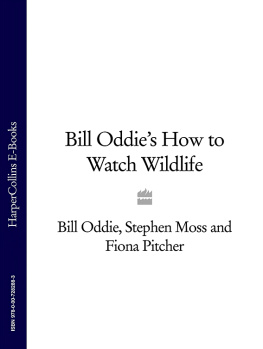
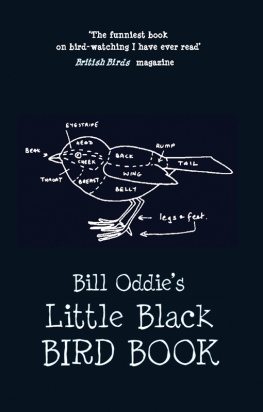

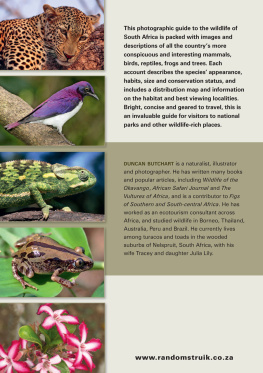
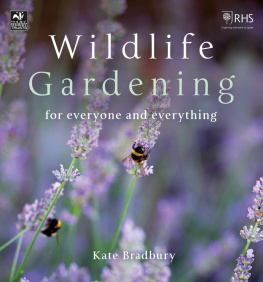
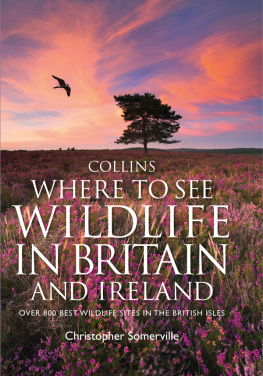
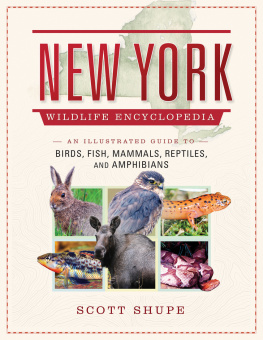
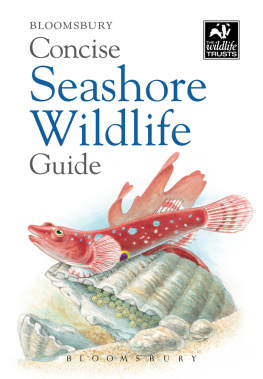
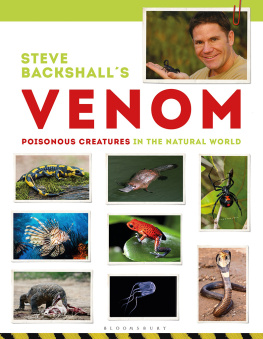
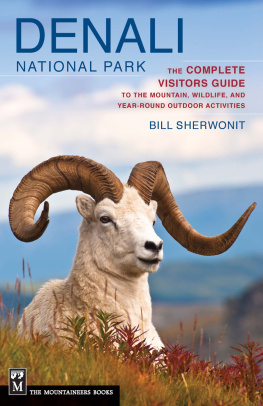
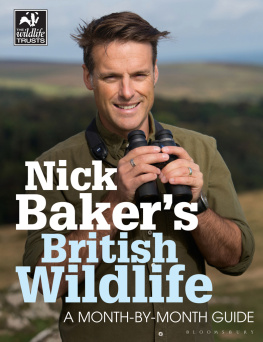
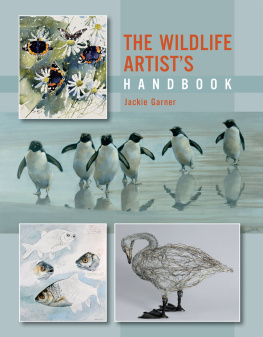
 As hobbies go, it is cheap as all you really need are a halfway decent pair of binoculars, a notebook and one or two field guides.
As hobbies go, it is cheap as all you really need are a halfway decent pair of binoculars, a notebook and one or two field guides.